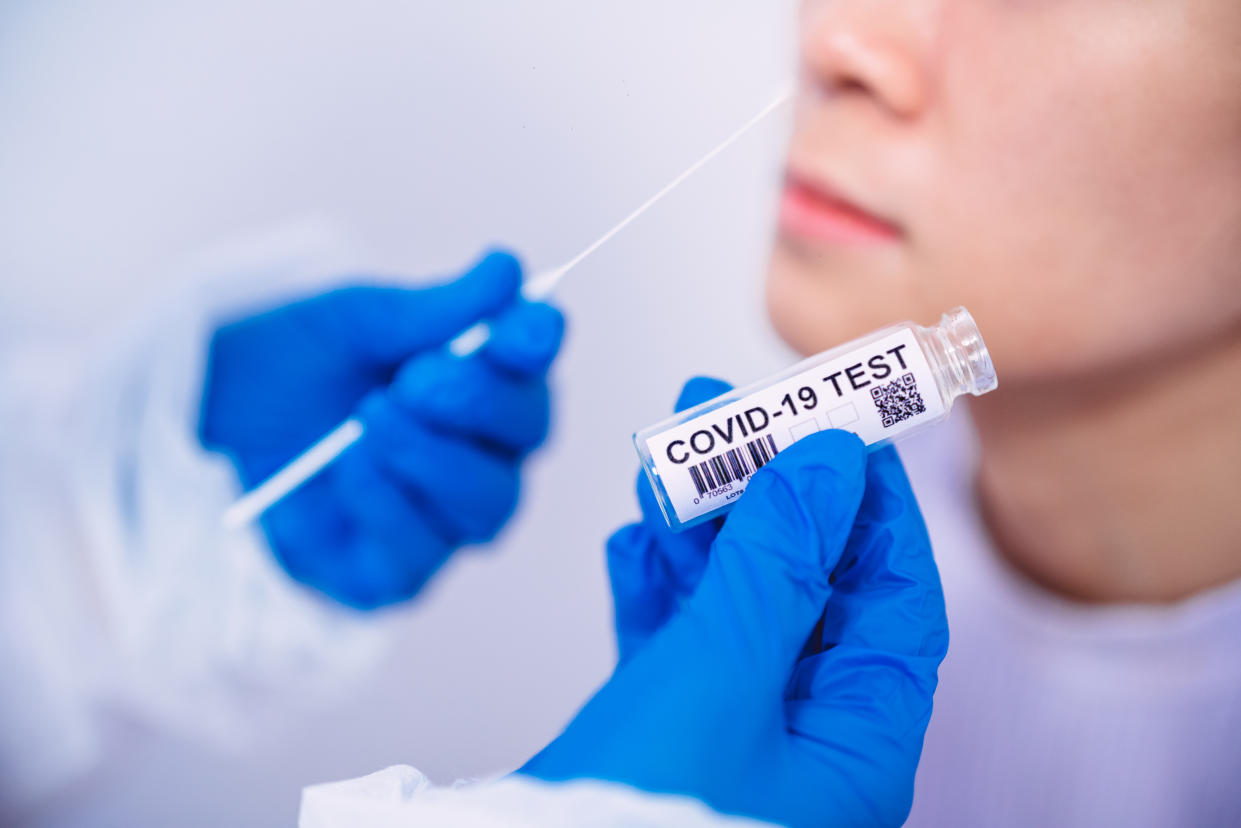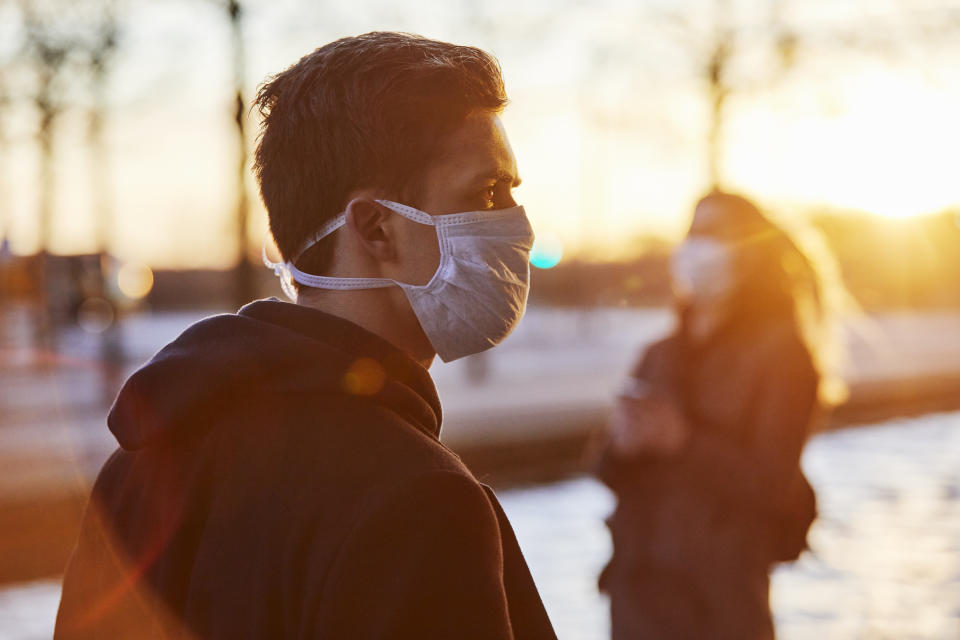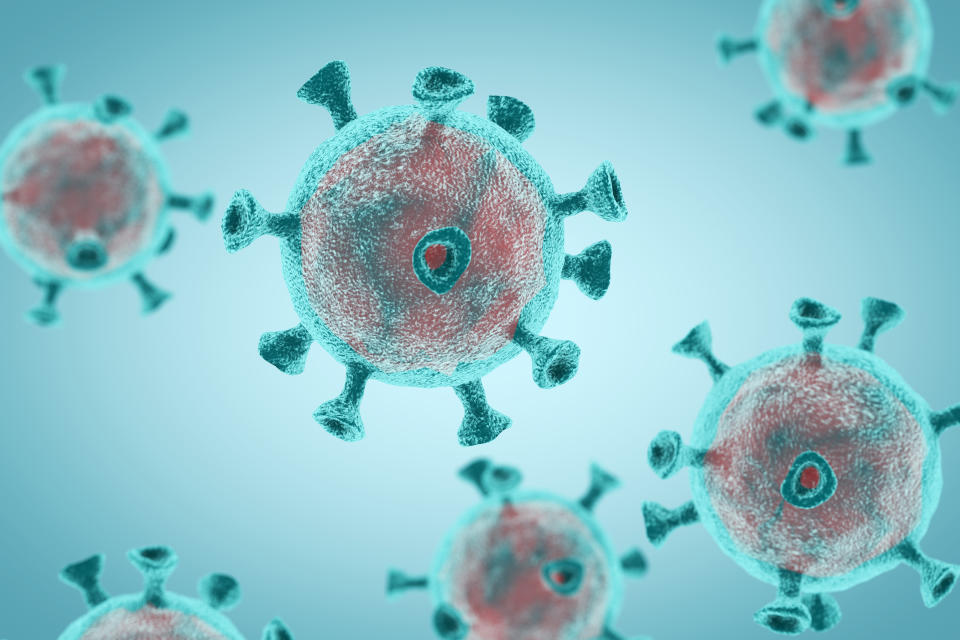Mass coronavirus testing 'will fail miserably' as experts call for Liverpool's pilot programme to be 'paused'

Experts have questioned the effectiveness of the UK government’s plans to mass test for the coronavirus, a programme that has been dubbed “Operation Moonshot”.
The major shift in strategy will move away from the much-criticised test and trace system. This targets people with symptoms, encouraging them to get swabbed and then isolate – along with those they have been in contact with – if it comes back positive.
With the extent of asymptomatic cases being questioned since the start of the outbreak, mass screening aims to identify people who carry the coronavirus without feeling unwell.
Mass testing is being piloted in Liverpool, with anyone who lives or works in the city being eligible to take part. A more targeted approach is then expected to be rolled out across universities and other towns.
Read more: Coronavirus vaccine will not have been rushed
With results coming back in 20 minutes, Boris Johnson has said the rapid turn around will “enable us to defeat this virus by the spring”.
Experts have questioned how effective mass screening is, however, with one calling for it to be “paused”, while another stressed “the way we are going about it means it will fail miserably”.

‘You’d have to test everyone every few days’
A team of experts from different universities has stressed it is unclear whether mass coronavirus screening will reduce infections, hospitalisations and deaths.
There are even concerns the widespread approach could make matters worse if the test proves unreliable.
The extent of asymptomatic cases has been debated since the coronavirus emerged.
On 3 March, the World Health Organization’s (WHO) director-general Dr Tedros Adhanom Ghebreyesus said: “Evidence from China is only 1% of reported cases do not have symptoms and most of those cases develop symptoms within two days”.
Scientists from the University of Hong Kong later claimed 12.1% of patients do not develop a fever.
According to Professor Paul Lehner from the University of Cambridge “up to 75% are asymptomatic”.
Read more: Inhaled MS drug doubles severe COVID patient's chance of recovery
It has been argued people who do not cough or sneeze, which are both symptoms and the main routes of transmission, would be expected to pass the infection on to fewer people.
Some have stressed, however, most people who claim to be asymptomatic actually have very mild illness.
Among those who notice their symptoms, some research implies patients are at their most infectious before they feel ill.
“The window of opportunity where someone is unknowingly infectious is probably a matter of days,” said Dr Angela Raffle from the University of Bristol.
“For [mass screening] to work, you’d have to test everyone every few days.”
Watch: Can you catch coronavirus twice?
Accuracy of mass testing questioned
Liverpool is piloting so-called lateral flow tests produced by the US company Innova.
These involve a saliva or swab sample being put into a well, before a liquid reagent – a chemical that causes a reaction – is added. Much like a pregnancy test, a line then appears in a window, indicating a positive or negative case.
Trials have suggested Innova’s test identifies coronavirus cases 100% of the time, while it correctly flags people who do not have the infection in 96% of incidences.
Thirteen studies have investigated a range of lateral flow tests – including Innova’s – for the coronavirus, most of which were carried out in a laboratory by experts.
“[It] doesn’t tell us how well it [the test] works in the field,” said Professor Deeks.
Not all of the studies looked at the tests’ accuracy among people with confirmed coronavirus. The gold-standard diagnosis is via a lengthy laboratory assessment called reverse transcription polymerase chain reaction (rtPCR).
This involves a very small amount of the virus’ genetic material being amplified for detection. Lateral flow tests, however, look for a protein on the coronavirus.
Read more: Long COVID patient 'gets so dizzy he cannot write a letter'
By not amplifying the virus’ genetic material, experts worry the infection may be missed in the early stages when the infection is replicating or if a poor swab was carried out.
“When you have a missed case, do they get false reassurance and engage in risky behaviour?” said Professor Sian Taylor-Phillips from the University of Warwick.
“[They may] start seeing their granny, stop wearing a mask.”
The team stressed “all tests for [the coronavirus] are imperfect”.
“Claims that rapid tests are positive when individuals are infectious and negative when they are not are misleading, as it is not possible for screening tests to establish reliably who is and is not infectious,” it added.
The team also worry inaccurate tests may undermine public confidence when it comes to getting swabbed.
When looking at Innova, self-trained members of staff at a testing centre picked up on 57% of coronavirus cases, compared to the 73% of incidences that were detected when experienced nurses carried out the assessment in a separate study.

Mass screening ‘really costly’
The price of mass screening also cannot be underestimated.
A society-wide approach would cost “more than any other healthcare intervention contemplated”, which could “cause harm through significant diversion of resources”, according to the team.
“Screening is really costly,” said Dr Raffle.
“That doesn’t mean it’s not worthwhile, but you have to look at the economics.”
Read more: Black people twice as likely to catch coronavirus
The government has signed at least 10 contracts – worth more than £1bn ($1.32bn) – with UK, US and Chinese companies for rapid testing technology and logistics, according to the Financial Times.
The department of health has also reportedly spent £106m ($139.9m) on millions of Innova lateral flow tests.
‘No scrutiny by anybody who knows about screening’
Population screening for the coronavirus is not endorsed by WHO or the government’s Scientific Advisory Group for Emergencies (Sage).
Perhaps critically, Operation Moonshot has been developed without input from the UK National Screening Committee, the body responsible for advising ministers on such strategies.
“There’s been no scrutiny by anybody who knows anything about screening,” said Dr Raffle.
“It’s like building a Channel Tunnel without asking engineers to look at the plans.
“If we ask the UK National Screening Committee, they’ve got the expert groups, they could crawl all over it and come up with some decent stuff within weeks – whether it would do any benefit, how much harm it would do, what it would cost.
“I cannot understand why that step has been bypassed.”
According to Dr Raffle, the committee offered to be involved in coming up with the programme, but was “told no thank you”.
“The way we are going about it means it will fail miserably,” she added.
Although unclear what the best approach is, the team believes focusing on symptomatic cases and their contacts – as well as vulnerable populations – would be the most effective way of stemming the outbreak.
Summing up mass screening, Professor Allyson Pollock from the University of Newcastle said: “The evidence is not there.
“The evidence around the tests is poor and weak.
“The Moonshot programme should be paused until the cost-effectiveness is well established.”
Watch: What is long COVID?



